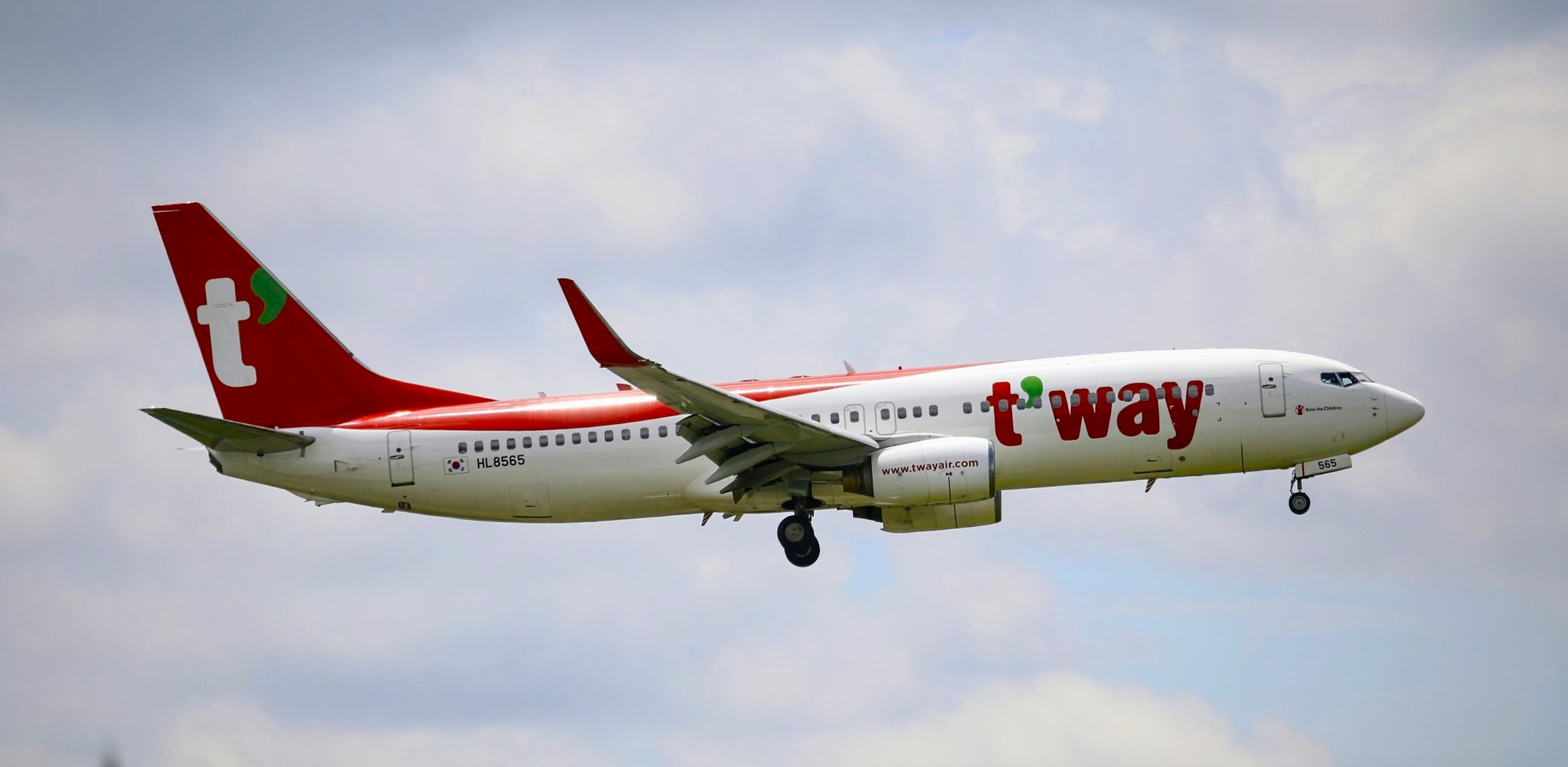


Much is happening in the South Korean domestic low-cost carrier (LCC) market, as it's expected to be reorganized due to the merger of Korean Air and Asiana Airlines.
As the combined entity of Jin Air (Korean Air), Air Busan (Asiana), and Air Seoul (Asiana) will rise to become the largest LCC, pushing out Jeju Air, the calculations of private equity fund (PEF) management companies that own competing LCCs have also become more complicated.
If we consider the fleet, the number of aircraft of the integrated LCC is also expected to be 58, surpassing Jeju Air (42).
Now, in a new development, Sono International, a hotel and resort operator affiliated with Daemyung Sono Group, has become the second largest shareholder of T'way Air.
Sono International has also secured a similar level of shares as Yelimdang, the parent company of T'way Air, and has laid the foundation to become the largest shareholder.
Private equity funds (PEF) those own LCCs are already taking the 'next step' in different ways. Some operators are focusing on expanding their business, while others are moving towards exit (recovering investment).
T'way Air announced on the 1st that its second largest shareholder, W Value Up Co., Ltd., sold 32,091,467 shares (14.9%) of T'way Air to Sono International over the counter.
The disposal price is 3,290 won per share, and the total sale price is approximately 105.6 billion won equivalent to $76 mn.
W Value Up Co., Ltd. is an investment purpose company established by private equity fund management company JKL Partners and was the second largest shareholder with a 26.77% stake in T'way Air.
With this sale, Sono International will become the second largest shareholder of T'way Air. Sono International will also have the right to purchase the remaining 25,572,742 shares (11.87%) of W Value Up Co., Ltd.
If Sono International acquires additional shares, it will become the largest shareholder, surpassing Yelimdang, the parent company of T'way Air.
Meanwhile, T'way Air has been considered a potential sale target with various exit (investment recovery) methods being discussed, including a simultaneous sale of shares by both parties, as the gap between the largest shareholders, T'way Holdings (28.02%) and Yelimdang (1.72%), which own 29.74%, and the second largest shareholder, JKL Partners, is only 2.97%.
Sono International stated,
“We have great interest in and a will to invest in the aviation industry, which can maximize business synergy along with our domestic hotel and resort business and overseas market expansion,” and
“We judged that this investment will greatly contribute to creating synergy through various forms of business alliances and cooperation with the airline industry, as well as increasing the future value of the company.”
Korean Air has currently reported its corporate merger with Asiana to 14 countries and has received approval from 13 countries, excluding the United States.
Korean Air expects to receive approval from the U.S. government for the merger in October. If it passes the U.S. corporate merger review, the integration of the two national airlines will be completed in about four years since November 2020.
Picture Courtesy : HK.buhihi
